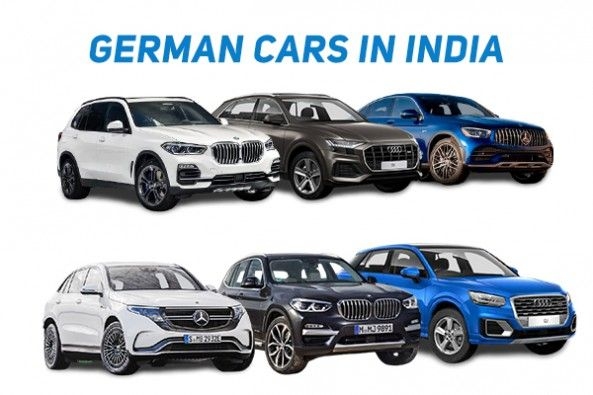There are so many people out there who are passionate about specific types of cars. Germany and Japan are two of the most prominent automobile manufacturing hubs in the world for decades now. When we talk about purchasing a car, often many buyers get confused between German and Japanese car brands. There is no doubt that both Japanese and German automakers manufacture cars that are consistent with their high-quality standards. However, they have their own pros and cons. German automakers such as Mercedes, BMW, and Audi produce models ( BMW 3 Series, Audi Q3, Mercedes-Benz A-Class ) that are usually expensive but tend to be luxury and performance-oriented. While Japanese automakers such as Honda, Maruti, and Toyota manufacture models ( Toyota Innova Crysta, Honda City, Vitara Brezza ) that are budget-friendly. Let's take a look at the story to find out in detail what are their key differences in terms of price, reliability, and safety: German cars vs Japanese cars?

Japanese vs German Cars: Price
German cars have always been associated with good performance and a luxurious feel. This further makes them overpriced. Apart from the steep price tag that you will have to pay to own a luxury vehicle, you will also need to budget for high maintenance costs. German automakers such as Mercedes, Audi, and BMW spend a lot of money on labour costs. They produce models in limited numbers. Also, they make sure that the models are fitted with the latest technology and top of the range parts which is yet another reason why German cars are so expensive. Japanese cars, on the other hand, do not come with the same level of luxury and refinement. They are produced in higher mass numbers combined with fewer options and packages. This way there is an economy of scale that reduces per unit costs for the development and manufacturing. Also, they do not require a lot of maintenance which further cuts down the cost.
Japanese vs German Cars: Reliability
When it comes to the reliability of a car, we typically see the number of repairs a vehicle requires in a year or over the span of the ownership. Technically, any car can be reliable. It just depends on how it is maintained. When we talk about Japanese cars, they have a reputation for being extremely reliable in comparison to German cars. The main reason behind this is that the Japanese automakers make sure that each and every car part is perfectly designed and in working condition before releasing the final product in the market. They focus more on engineering their cars so that when they roll out their models in the market, they are one durable, reliable, and can be easily operated. On the other hand, German cars are considered to be the least reliable. They are quite expensive to maintain as they require specialized training and imported spare parts. Also, the engine is quite complicated and costs more to maintain or repair.
Japanese vs German Cars: Safety
Safety is synonymous with any vehicle. German cars are regarded to be safer in comparison to Japanese cars. German automakers make sure that their car models use thicker gauge steel along with a solid door. While the Japanese manufacturers prefer to make a door that are lighter and can be accessed by the passengers easily. German cars are also high-end models so they have advanced safety features. They provide a sturdier feel, smooth, and controlled ride. Also, the cabin of German cars are quite spacious. Talking about the Japanese car models, they come equipped with a safety kit that is within the budget. But Japanese automaker Honda engineers all its small cars to withstand the impact from a bigger SUV.

The Final Verdict
Both German car brands and Japanese car manufacturers have numerous benefits that are attractive to a lot of people. If you want to make a choice between a German car and a Japanese car, you have to first find out what are your actual requirements. If you are looking for a compact built, comfortable, and luxurious car, then you should consider a German vehicle. But in case, reliability, affordability, and simplicity are your priority then you should go for a Japanese car model ( Vitara Brezza, Honda City). Japanese cars are cheaper to run, are cost effective, more reliable, generic interiors, with reasonable performance and have a great resale value. While German cars (Audi Q3, Mercedes-Benz A-Class) are much nicer to drive with smooth & quiet drivetrain, quite expensive, and come with luxurious interiors. Their parts are more expensive and reliability is suspect if not maintained correctly. For better research, you can visit Droom - the largest online used car platform in India.





